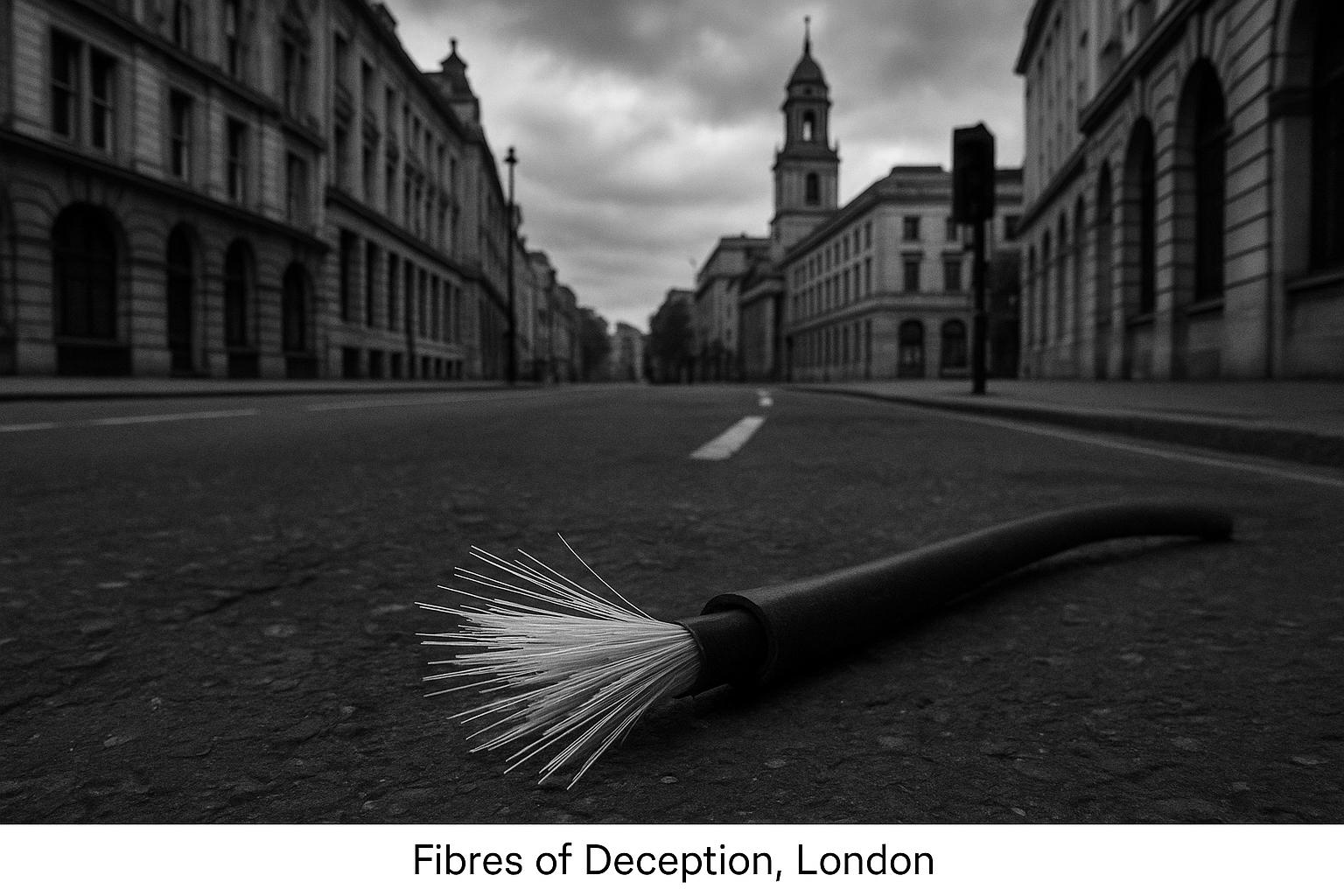Plans for a new "super-embassy" for China in London have stirred significant controversy due to its proximity to highly sensitive telecommunications infrastructure in the City of London. According to recently disclosed planning documents, the proposed embassy would be built around the Wapping Telephone Exchange—a critical hub operated by BT Openreach that connects key financial institutions via high-speed fibre optic cables. This development would be the largest Chinese embassy in Europe, accommodating more than 200 diplomats and intelligence officers. The embassy complex is planned for the site of a former Barclays trading floor, adjacent to a tunnel carrying fibre-optic cables underneath the Thames since 1985.
Security officials have voiced substantial concerns that the embassy could facilitate espionage activities, particularly the siphoning of data from the fibre-optic cables running near the site. Experts warn that data extraction methods involving extraordinarily thin wires, difficult to detect, could be employed to spy on communications vital to UK national and financial security. The Bank of England has also flagged the risks associated with constructing such a sensitive facility so close to the financial heart of London.
This embattled project has become emblematic of wider political and security tensions. The UK's intelligence services reportedly raised objections during the planning process, but these were allegedly sidelined. Large portions of the embassy plans, including those detailing basement rooms and tunnels ominously referred to as "spy dungeons," have been heavily redacted from public and security scrutiny. Critics argue that due to the embassy's location and infrastructure, there is a high risk that Chinese intelligence could gain direct access to telecommunications cables, posing a serious threat to UK national security.
Political controversy has escalated as accusations emerged that Sir Keir Starmer's government made secret assurances to Beijing that the project would be approved, despite its previous blocking under the Conservative government on security grounds. The planning application was revived following the 2024 General Election, with reports suggesting Chinese President Xi Jinping personally raised the issue in talks with Chancellor Rachel Reeves during a trade visit to China. Some critics have condemned Reeves for prioritising trade and financial concerns over national security, especially amid a substantial public finance deficit.
The UK government's decision on the planning application has been delayed multiple times, with the latest postponement pushing the ruling to December 10, 2025. China’s foreign ministry responded with sharp criticism of the delays, accusing the UK of failing to honour contractual commitments and warning of repercussions if the approvals are not granted promptly. The embassy’s Chinese representatives defended the project, asserting it complies with diplomatic norms and local regulations, and called for reciprocal facilitation of embassy constructions in both countries.
The controversy intensified following the recent collapse of a high-profile espionage trial involving two British men accused of spying for China. The Crown Prosecution Service dropped the case citing lack of sufficient evidence that China threatened UK national security, a decision that reportedly frustrated MI5 leadership. This judicial outcome has deepened the chasm between government decisions and the concerns expressed by the intelligence community.
In response to the growing unease, Conservatives have demanded an inquiry into allegations of undisclosed deals with China regarding the embassy, viewing such actions as potential breaches of the ministerial code. Shadow Housing Secretary Sir James Cleverly criticised the Labour government for suppressing security agency concerns and called for a rejection of the planning application, pointing to decisions by Ireland and Australia to block similar Chinese embassy projects over security fears.
Independent experts and security analysts echoed these concerns, warning that the location of the embassy near vital fibre-optic cables and data centres could facilitate wiretapping and surveillance, greatly amplifying espionage risks. They highlighted that the embassy could be used not only for intelligence gathering but also for intimidation and harassment of UK citizens and dissidents, issues that have troubled other nations hosting large Chinese diplomatic presences.
Efforts to mitigate the risks, such as rerouting the telecommunications cables, are expected to be prohibitively expensive and complex, requiring Chinese cooperation and potentially costing UK taxpayers millions. Meanwhile, senior UK officials, including Sir Oliver Robbins, the Foreign Office’s permanent secretary, have engaged with Chinese counterparts to seek resolution, including discussions about reciprocal embassy construction in Beijing.
The unfolding dispute over the Chinese super-embassy underscores the delicate balance between diplomatic relations, national security, and economic interests. With the decision looming and tensions escalating between the UK government, intelligence services, and China, this matter remains a highly sensitive and closely watched issue on the international stage.
📌 Reference Map:
- Paragraph 1 – [1], [3], [4]
- Paragraph 2 – [1], [4], [5]
- Paragraph 3 – [1], [5], [2]
- Paragraph 4 – [1], [2], [6]
- Paragraph 5 – [1], [2], [5]
- Paragraph 6 – [1], [2], [6], [7]
- Paragraph 7 – [1], [3], [4], [5], [7]
- Paragraph 8 – [1], [4], [5]
- Paragraph 9 – [1], [2], [4], [6]
Source: Noah Wire Services
